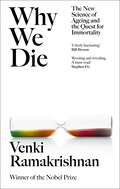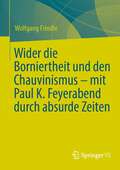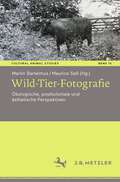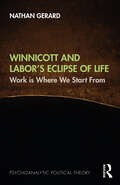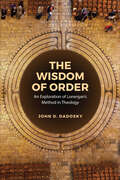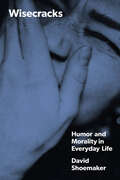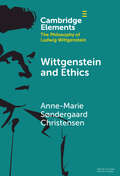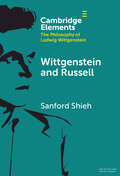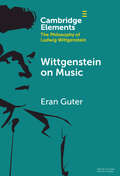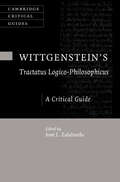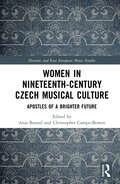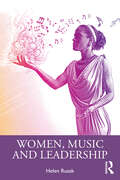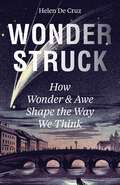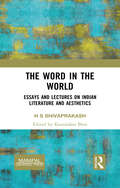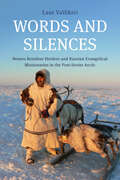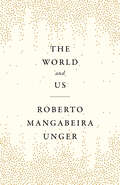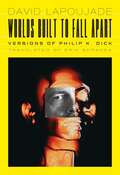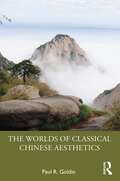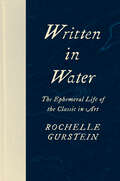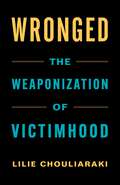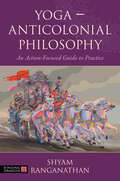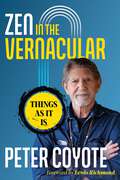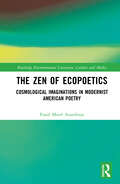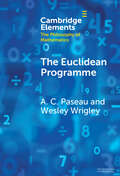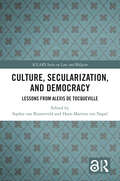- Table View
- List View
Why We Die: The New Science of Ageing and the Quest for Immortality
by Venki Ramakrishnan'Spectacular. It changed my perspective on the whole living world but most of all myself.' - CHRIS VAN TULLEKEN'Combines science, politics, memoir and medicine with ease, grace and lucidity. An incredible journey.' SIDDHARTHA MUKHERJEE'Utterly fascinating. Clear, enthralling and packed with insights.' - BILL BRYSON'A thrilling ride through the science of ageing and death. A must-read.' - STEPHEN FRY_________Would you want to live forever?Nobel Prize-winning molecular biologist Venki Ramakrishnan transforms our understanding of why we age and die - and whether there's anything we can do about it.We are living through a revolution in biology. Giant strides are being made in our understanding of why we age and die, and why some species live longer than others. Immortality, once a faint hope, has never been more within our grasp.Examining recent scientific breakthroughs, Ramakrishnan shows how cutting-edge efforts to extend lifespan by altering our natural biology raise profound questions. Although we might not like it, does death serve a necessary biological purpose? And how can we increase our chances of living long, healthy and fulfilled lives? As science advances, we have much to gain. But might we also have much to lose?
Wider die Borniertheit und den Chauvinismus – mit Paul K. Feyerabend durch absurde Zeiten
by Wolfgang FrindteAnlässlich seines 100. Geburtstages wird an Paul K. Feyerabend erinnert; es werden seine Ideen diskutiert und es wird gefragt, inwieweit diese geeignet sind, aktuelle Geschehnisse und Konflikte zu beurteilen.
Wild-Tier-Fotografie: Ökologische, postkoloniale und ästhetische Perspektiven (Cultural Animal Studies #15)
by Martin Bartelmus Maurice SaßTechnische Innovationen der Fotografie erlaubten Ende des 19. Jahrhunderts, Wildtiere nicht mehr nur als Kadaver und Beute oder in Studio und Gehege abzulichten, sondern ihnen in ihrem natürlichen Habitat nachzuspüren. Die frühe Wildtierfotografie bediente damit ein populäres Interesse an der als lokal, national oder kolonial geschätzten Fauna, lieferte wichtige Beiträge zur zoologischen Forschung und verstand sich häufig als Vorkämpfer des Naturschutzes. Ganz neu stellte sich damit aber auch die Frage, wie man Tiere richtig fotografiert: technisch, ästhetisch, ethisch. Der Band beantwortet diese Fragen in historischer Perspektive und erschließt damit das Forschungsfeld der Wildtierfotografie.
Winnicott and Labor’s Eclipse of Life: Work is Where We Start From (Psychoanalytic Political Theory)
by Nathan GerardNathan Gerard draws upon the pathbreaking insights of a pediatrician and psychoanalyst D. W. Winnicott to offer a new set of ideas in the novel domain of contemporary work life and its discontents. Locating Winnicott within a broad landscape of critical scholarship that dissects work’s perils, the book positions Winnicott as both a radical critic and creative advocate for building a different kind of work life—one that might make room for the presence of self. By shuffling the discourse on neoliberal subjectivity to reclaim what Winnicott calls “unit status” of the separate self, Gerard differentiates Winnicott from the relational tradition by advocating for Winnicott’s non-relational aspects. Through such analysis, the book reveals how work and home have become two sides of the same impoverished coin, each contributing to a legitimately “bad environment” that perpetuates self-absence and annihilates one’s unique sense of “feeling real” and alive. Winnicott and Labor’s Eclipse of Life will be of interest to readers of Winnicott and psychoanalysis, organization and management studies, and anyone hoping to deepen their engagement with the dynamics of contemporary work life.
The Wisdom of Order: An Exploration of Lonergan’s Method in Theology (Lonergan Studies)
by John DadoskyIn 1972, renowned Canadian philosopher and theologian Bernard Lonergan published Method in Theology. Now, following the fiftieth anniversary of his landmark work, The Wisdom of Order presents the next step in advancing the thought of this significant religious theorist. In addition to the previously compiled Collected Works of Bernard Lonergan, this book aims to provide an appreciation and exploration of Method in Theology. It analyses the first five chapters of the work with commentaries to help readers traverse Lonergan’s thought more effectively and deeply. John D. Dadosky presents compelling exposition and observations to assist readers. The book explores questions related to the philosophical status of beauty, which Lonergan does not address. In addition to Lonergan’s three stages of meaning, the book also seeks to develop a fourth stage that pertains to the turn to alterity emphasizing positive relations with other cultures and religions. As a result, The Wisdom of Order critically analyses an important groundbreaking work while also highlighting areas for further development.
Wisecracks: Humor and Morality in Everyday Life
by David ShoemakerA philosopher’s case for the importance of good—if ethically questionable—humor. A good sense of humor is key to the good life, but a joke taken too far can get anyone into trouble. Where to draw the line is not as simple as it may seem. After all, even the most innocent quips between friends rely on deception, sarcasm, and stereotypes and often run the risk of disrespect, meanness, and harm. How do we face this dilemma without taking ourselves too seriously? In Wisecracks, philosopher David Shoemaker examines this interplay between humor and morality and ultimately argues that even morally suspect humor is an essential part of ethical life. Shoemaker shows how improvised “wisecracks” between family and friends—unlike scripted stand-up, sketches, or serials—help us develop a critical human skill: the ability to carry on and find the funny in tragedy. In developing a new ethics of humor in defense of questionable gibes, Wisecracks offers a powerful case for humor as a healing presence in human life.
Wittgenstein and Ethics (Elements in the Philosophy of Ludwig Wittgenstein)
by null Anne-Marie Søndergaard ChristensenIn Ludwig Wittgenstein's writings, ethics takes a central place in his thinking. This element investigates his engagement with ethics in both early and later thinking. Starting from the remarks on ethics in the Tractatus Logico-Philosophicus and the framing of these remarks, it presents two influential approaches to Tractarian ethics, before it develops a coherent reading of ethics in the early thinking, focusing on ethical silence and the relationship notions of world and the philosophical 'I'. The reading of 'A Lecture on Ethics' focuses on the critique of ethical theory and the personal dimension of ethics, two themes also running through Wittgenstein's later thinking. It considers Wittgenstein's later ethical investigations, of ethical examples, ethically relevant language uses of language and the connections between reflections on ethics and living. It also considers the role of the other in Wittgenstein's later thinking.
Wittgenstein and Russell: The Vicissitudes Of Judgment And Proposition (Elements in the Philosophy of Ludwig Wittgenstein)
by null Sanford ShiehThis Element provides clear and concise explanations of the most important of these responses: Wittgenstein's criticisms of Russell's theories of judgment in the summer of 1913. These criticisms show that Russell's theories do not provide a coherent account of the truth and falsity of judgments without a satisfactory theory of propositions. They are of first-rate importance for Wittgenstein's early philosophical development, setting the path to the conceptions of proposition and of logic in Tractatus Logico-Philosophicus. This Element details the steps of this philosophical development, in Wittgenstein's “Notes on Logic” and his wartime notebooks, culminating in the recognition of primitive notions of possibility and necessity as central to propositional representation and the nature of logic. It also touches on further aspects of Wittgenstein's responses to Russell after the Tractatus, in writings of the middle and later periods of Wittgenstein's philosophy.
Wittgenstein on Music (Elements in the Philosophy of Ludwig Wittgenstein)
by null Eran GuterIn this Element, the author set out to answer a twofold question concerning the importance of music to Wittgenstein's philosophical progression and the otherness of this sort of philosophical importance vis-à-vis philosophy of music as practiced today in the analytic tradition. The author starts with the idea of making music together and with Wittgenstein's master simile of language-as-music. The author traces these themes as they play out in Wittgenstein early, middle, and later periods. The author argues that Wittgenstein's overarching reorientation of the concept of depth pertaining to music in the aftermath of his anthropological turn, and against the backdrop of the outlook of German Romanticism, culminates in his unique view of musical profundity as 'knowledge of people.' This sets Wittgenstein's view in sharp contrast with certain convictions and debates that typify current analytically inclined philosophy of music.
Wittgenstein's Tractatus Logico-Philosophicus: A Critical Guide (Cambridge Critical Guides)
by José L. ZalabardoPublished just over a century ago, Wittgenstein's Tractatus Logico-Philosophicus is the only book-length work to have been published during his lifetime and it continues to generate interest and scholarly debate. It is structured as a series of propositions on metaphysics, language, the nature of philosophy, and the distinction between what can be said and what can be shown. This volume brings together eleven new essays on the Tractatus covering a wide variety of topics, from the central Tractarian doctrines concerning representation, the structure of the world and the nature of logic, to less prominent issues including ethics, natural science, mathematics and the self. Individual essays advance specific exegetical debates in important ways, and taken as a whole they offer an excellent showcase of contemporary ideas on how to read the Tractatus and its relevance to contemporary thought.
Women in Nineteenth-Century Czech Musical Culture: Apostles of a Brighter Future (Slavonic and East European Music Studies)
by Anja Bunzel Christopher Campo-BowenThis volume focuses on the circumstances of women’s music-making in the vibrant and diverse environment of the Czech lands during the nineteenth century. It sheds light on little-known women musicians, while also considering more well-known works and composers from new woman-centric perspectives. It shows how the unique environment of Habsburg Central Europe, especially Bohemia and Lower Austria, intersects with gender to reveal hitherto unexplored networks that challenge the methodological nationalism of music studies as well as the discipline’s continued emphasis on singular canonical figures. The main areas of enquiry address aspects of performance and identity both within the Czech lands and abroad; women’s impact on social life with a view to different private, semiprivate, and public contexts and networks; and compositional aesthetics in musical works by and about women, analysed through the lens of piano works, song, choir music, and opera, always with the reception of these works in mind.
Women, Music and Leadership
by Helen RusakWomen, Music and Leadership offers a wide-ranging survey of women in musical leadership and their experiences, highlighting women’s achievements and considering how they negotiate the challenges of the leadership space in music. Women have always participated in music as performers, teachers, composers and professionals, but remain underrepresented in leadership positions. Covering women’s leadership across a wide variety of roles and musical genres, this book addresses women in classical music, gospel, blues, jazz, popular music, electronic music and non-Western musical contexts, and considers women working as composers, as conductors, and in music management and the music business. Each chapter includes several case studies of women’s careers, exploring their groundbreaking contributions to music and the challenges they faced as leaders. Connecting management theory and leadership research with feminist musicology, this book paints a new picture of women’s major contributions as leaders in music and their ongoing struggles for equity. It will be relevant to students and scholars in arts and music management, as well as all those studying music, gender or leadership, and women music professionals.
Wonderstruck: How Wonder and Awe Shape the Way We Think
by Helen De CruzA philosopher explores the transformative role of wonder and awe in an uncertain worldWonder and awe lie at the heart of life&’s most profound questions. Wonderstruck shows how these emotions respond to our fundamental need to make sense of ourselves and everything around us, and how they enable us to engage with the world as if we are experiencing it for the first time.Drawing on the latest psychological insights on emotions, Helen De Cruz argues that wonder and awe are emotional drives that motivate us to inquire and discover new things, and that humanity has deliberately nurtured these emotions in cultural domains such as religion, science, and magic. Tracing how wonder and awe unify philosophy, the humanities, and the sciences, De Cruz provides new perspectives on figures such as Plato, Aristotle, Adam Smith, William James, Rachel Carson, Maurice Merleau-Ponty, Jean-Paul Sartre, and Abraham Heschel. Along the way, she explains how these singular emotions empower us to be open-minded, to experience joy and hope, and to be resilient in the face of personal troubles and global challenges.Taking inspiration from Descartes&’s portrayal of wonder as &“that sudden surprise of the soul,&” this illuminating book reveals how wonder and awe are catalysts that can help us reclaim what makes life worth living and preserve the things we find wonderful and valuable in our lives.
The Word in the World: Essays and Lectures on Indian Literature and Aesthetics
by H S ShivaprakashThe Word in the World is a collection of essays and lectures by H S Shivaprakash, a well-known poet, playwright, and translator. Edited by Kamalakar Bhat, this book brings together Prof Shivaprakash’s interventions in the realm of issues that are entwined with the continuities and discontinuities in the cultural negotiations of India. Distinctively, these are essays on subjects ranging from the nature and significance of medieval works of literature in India to issues arising out of developments in Indian aesthetics. The unfeigned magnitude of this work must be found among students and scholars, who will gain from it a perspective significantly different from the ones available in the prevailing academic discourses, thus indicating a way beyond poststructuralist/postmodernist frameworks. This is a book that will interest a wide variety of readers with its engaging insights and breadth of reference especially because it is written in a comprehensible style. Print edition not for sale in South Asia (India, Sri Lanka, Nepal, Bangladesh, Pakistan and Bhutan)
Words and Silences: Nenets Reindeer Herders and Russian Evangelical Missionaries in the Post-Soviet Arctic
by Laur VallikiviWords and Silences tells the story of an extraordinary group of independent Nenets reindeer herders in the northwest Russian Arctic. Under socialism these nomads managed to avoid the Soviet state and its institutions of collectivization, but soon after the atheist regime collapsed, while some staunchly resisted, many of them became fervent fundamentalist Christians. By exploring differing concepts of how traditional and convert Nenets use and define words and of the meanings they ascribe to the withholding of speech, Laur Vallikivi shows how a local form of global Christianity has emerged through intricate negotiations of self, sociality, and cosmology. Moving beyond studies of modernization and globalization that have all-too-predictable outcomes for indigenous peoples, Words and Silences invites us to view not only religious devotees, but words themselves, as agents of a complex and ongoing transformation.
The World and Us
by Roberto Mangabeira Unger"A restless visionary striving to realize the highest aspirations of modernity itself."–New York TimesA radical re-envisioning of the human condition by the acclaimed Brazilian philosopherIn The World and Us, Roberto Mangabeira Unger sets out to reinvent philosophy. His central theme is our transcendence, everything in our existence points beyond itself, and its relation to our finitude: everything that surrounds us, and we ourselves, are flawed and ephemeral.He asks how we can live so that we die only once, instead of dying many small deaths; how we can breathe new life and new meaning into the revolutionary movement that has aroused humanity for the last three centuries, but that is now weakened and disoriented; and how we can make sense of ourselves without claiming for human beings a miraculous exception to the general regime of nature. For Unger, philosophy must be the mind on fire, insisting on our prerogative to speak to what matters most.From this perspective, he redefines each of the traditional parts of philosophy, from ontology and epistemology to ethics and politics. He turns moral philosophy into an exploration of the contest between the two most powerful contemporary moral visions: an ethic of self-fashioning and non-conformity, and an ethic of human connection and responsibility.And he turns political philosophy into a program of deep freedom, showing how to democratize the market economy, energize democratic politics, and give the individual worker and citizen the means to flourish amid permanent innovation.
Worlds Built to Fall Apart: Versions of Philip K. Dick (Univocal)
by David LapoujadePhilosophically analyzing the work of one of the twentieth century&’s most popular, and peculiar, science fiction authors Despite his enduring popularity, Philip K. Dick (1928–1982)—whose short stories and novels were adapted into or influenced many major films and television shows, including Blade Runner, Total Recall, The Truman Show, and The Man in the High Castle—has long been a marginal figure in American literature, even in the science fiction genre he helped revolutionize. Here, an influential French philosopher offers a major new perspective on an author who was known as much for his eccentricities and excesses as for his writing. For David Lapoujade, it is precisely the many ways in which Dick&’s works seem to hover on the brink of losing all touch with reality that make him such a singular figure, both as a sci-fi author and as a thinker of contemporary life. In Worlds Built to Fall Apart, Lapoujade defines sci-fi as a way of thinking through the creation of worlds and argues that Dick does so by creating worlds that fall rapidly to pieces. Whatever his mechanism to bring this about (drugs or madness, alien satellite transmissions or encroaching parallel universes), the effect is always to reveal reality to be a construction, in which certain people determine what appears as real to the rest of us. Orienting Dick within philosophy and drawing connections to a wide variety of other thinkers and artists, this remarkable reading shows how he proposes unstable, fluctuating futures in which tinkering with reality has become the best means of resisting total control. Engaging with most of Philip K. Dick&’s published works, as well as with several of his essays and his notorious psychic autobiography The Exegesis, Lapoujade hones in on the &“war of the psyches&” that underlies Dick&’s critique of reality. He puts Dick&’s work in conversation with a vast array of subjects—from cybernetics to schizoanalysis, and from Pop art to David Lynch, J. G. Ballard, and William S. Burroughs—revealing Dick&’s oeuvre to comprise a profound reality defined by artifice, precarity, and control. Retail e-book files for this title are screen-reader friendly.
The Worlds of Classical Chinese Aesthetics
by Paul R. GoldinThis book presents the foundations of classical Chinese aesthetic discourse - roughly from the Bronze Age to the early Middle Ages - with the following animating questions:What is art?Why do we produce it?How do we judge it?The arts that garnered the most theoretical attention during this time period were music, poetry, calligraphy, and painting, and this book considers the reasons why these four were privileged. Whereas modern artists most likely consider themselves musicians or poets or calligraphers or painters or sculptors or architects, the pre-modern authors who produced the literature that established Chinese aesthetics prided themselves on being wenren, “cultured people,” conversant with all forms of art and learning. Other comparisons with Western theories and works of art are presented at due junctures.Key Features Addresses Chinese aesthetic discourse on its own terms Provides comparisons of key concepts and theories with examples from Western sources Includes more coverage of primary sources than any other English-language book on the subject Each chapter opens with a helpful summary, highlighting the chapter’s key themes
Written in Water: The Ephemeral Life of the Classic in Art
by Rochelle GursteinA deeply personal yet broadly relevant exploration of the ephemeral life of the classic in art, from the eighteenth century to our own day Is there such a thing as a timeless classic? More than a decade ago, Rochelle Gurstein set out to explore and establish a solid foundation for the classic in the history of taste. To her surprise, that history instead revealed repeated episodes of soaring and falling reputations, rediscoveries of long-forgotten artists, and radical shifts in the canon, all of which went so completely against common knowledge that it was hard to believe it was true. Where does the idea of the timeless classic come from? And how has it become so fiercely contested? By recovering disputes about works of art from the eighteenth century to the close of the twentieth, Gurstein takes us into unfamiliar aesthetic and moral terrain, providing a richly imagined historical alternative to accounts offered by both cultural theorists advancing attacks on the politics of taste and those who continue to cling to the ideal of universal values embodied in the classic. As Gurstein brings to life the competing responses of generations of artists, art lovers, and critics to specific works of art, she makes us see the same object vividly and directly through their eyes and feel, in all its enlarging intensity, what they felt.
Wronged: The Weaponization of Victimhood
by Lilie ChouliarakiWhy is being a victim such a potent identity today? Who claims to be a victim, and why? How have such claims changed in the past century? Who benefits and who loses from the struggles over victimhood in public culture?In this timely and incisive book, Lilie Chouliaraki shows how claiming victimhood is about claiming power: who deserves to be protected as a victim and who should be punished as a perpetrator. She argues that even though victimhood has long been used to excuse violence and hierarchy, social media platforms and far-right populism have turned victimhood into a weapon of the privileged. Drawing on recent examples such as the overturning of Roe v. Wade, movements like #MeToo and Black Lives Matter, and the COVID-19 pandemic, as well as historical ones from the major wars of the twentieth century and the Civil Rights Movement, Wronged reveals why claims of victimization are so effective at reinforcing instead of alleviating inequalities of class, gender, and race. Unless we come to recognize the suffering of the vulnerable for what it is—a matter not of victimhood but of injustice—Chouliaraki powerfully warns, the culture of victimhood will continue to perpetuate old exclusions and enable further injuries.
Yoga – Anticolonial Philosophy: An Action-Focused Guide to Practice
by Shyam RanganathanProviding a decolonial, action-focused account of Yoga philosophy, this practical work from Dr. Shyam Ranganathan, pioneering scholar in the field of Indian moral philosophy, focuses on the South Asian tradition to explore what Yoga was like prior to colonization. It challenges teachers and trainees to reflect on the impact of Western colonialism on Yoga as well as understand Yoga as the original decolonial practice in a way that is accessible. Each chapter takes the reader through a journey of sources and traditions, beginning with an investigation into the colonial -Platonic and Aristotelian- approaches to pedagogy in colonized yoga spaces, through contrary, ancient philosophies of South Asia, such as Jainism, Buddhism, Sankhya, and various forms of Vedanta, to sources of Yoga, including the Upanisads, Yoga Sutra, Bhagavad Gita and Hatha Yoga Pradipika. With discussions of the precolonial philosophy of Yoga, its relationship to social justice, and modern postural yoga's relationship with colonial trauma, this is a comprehensive guide for any yoga teacher or trainee to activate and synergize their practice. Supplementary online resources bring the text to life, making this the perfect text for yoga teacher trainings.
Zen in the Vernacular: Things As It Is
by Peter Coyote• Shows how Zen offers a creative problem-solving mechanism and moral guide ideal for the stresses and problems of daily life• Shares the author&’s secular, vernacular interpretations of the Four Noble Truths, the Three Treasures, the Eightfold Path, and other fundamental Buddhist ideasDuring the nearly 3,000 years since the Buddha lived, his teachings have spread widely around the globe. In each culture where Buddhism was introduced, the Buddha&’s teachings have been pruned and modified to harmonize with local customs, laws, and cultures. We can refer to these modifications as &“gift wrapping,&” translating the gifts of Buddha&’s teachings in ways sensible to particular cultures in particular times. This gift-wrapping explains why Indian, Tibetan, Vietnamese, Japanese, Chinese, and Indonesian Buddhism have significant differences.In this engaging guide to Zen Buddhism, award-winning actor, narrator, and Zen Buddhist priest Peter Coyote helps us peer beneath the Japanese gift-wrapping of Zen teachings to reveal the fundamental teachings of the Buddha and show how they can be applied to contemporary daily life. The author explains that the majority of Western Buddhists are secular and many don&’t meditate, wear robes, shave their heads, or believe in reincarnation. He reminds us that the mental/physical states achieved by Buddhist practice are universal human states, ones we may already be familiar with but perhaps never considered as possessing spiritual dimensions.Exploring Buddha&’s core teachings, the author shares his own secular and accessible interpretations of the Four Noble Truths, the Three Treasures, and the Eightfold Path within the context of his lineage and the teachings of his teacher and the teachers before him. He looks at Buddha&’s teachings on our singular reality that appears as a multiplicity of things and on the &“self&” that perceives reality, translating powerful spiritual experience into the vernacular of modern life.Revealing the practical usefulness of Buddhist philosophy and practice, Zen in the Vernacular shows how Zen offers a creative problem-solving mechanism and moral guide ideal for the stresses and problems of everyday life.
The Zen of Ecopoetics: Cosmological Imaginations in Modernist American Poetry (Routledge Environmental Literature, Culture and Media)
by Enaiê Mairê AzambujaThis book is the first comprehensive study investigating the cultural affinities and resonances of Zen in early twentieth-century American poetry and its contribution to current definitions of ecopoetics, focusing on four key poets: William Carlos Williams, Marianne Moore, Wallace Stevens, and E.E. Cummings. Bringing together a range of texts and perspectives and using an interdisciplinary approach that draws on Eastern and Western philosophies, including Zen and Taoism, posthumanism and new materialism, this book adds to and extends the field of ecocriticism into new debates. Its broad approach, informed by literary studies, ecocriticism, and religious studies, proposes the expansion of ecopoetics to include the relationship between poetic materiality and spirituality. It develops ‘cosmopoetics’ as a new literary-theoretical concept of the poetic imagination as a contemplative means to achieving a deeper understanding of the human interdependence with the non-human. Addressing the critical gap between materialism and spirituality in modernist American poetry, The Zen of Ecopoetics promotes new forms of awareness and understanding about our relationship with non-human beings and environments. It will be of interest to scholars, researchers, and students in ecocriticism, literary theory, poetry, and religious studies.
The Euclidean Programme (Elements in the Philosophy of Mathematics)
by null A. C. Paseau null Wesley WrigleyThe Euclidean Programme embodies a traditional sort of epistemological foundationalism, according to which knowledge – especially mathematical knowledge – is obtained by deduction from self-evident axioms or first principles. Epistemologists have examined foundationalism extensively, but neglected its historically dominant Euclidean form. By contrast, this book offers a detailed examination of Euclidean foundationalism, which, following Lakatos, the authors call the Euclidean Programme. The book rationally reconstructs the programme's key principles, showing it to be an epistemological interpretation of the axiomatic method. It then compares the reconstructed programme with select historical sources: Euclid's Elements, Aristotle's Posterior Analytics, Descartes's Discourse on Method, Pascal's On the Geometric Mind and a twentieth-century account of axiomatisation. The second half of the book philosophically assesses the programme, exploring whether various areas of contemporary mathematics conform to it. The book concludes by outlining a replacement for the Euclidean Programme.
Culture, Secularization, and Democracy: Lessons from Alexis de Tocqueville (ISSN)
by Sophie van Bijsterveld and Hans-Martien ten NapelFollowing the approach developed by Alexis de Tocqueville, this volume views democracy as a cultural phenomenon. It starts from the assumption that if we are to adequately address concerns about the current state and future of modern Western democracies, we need first to tackle the cultural preconditions necessary for the functioning of a democracy.Since Tocqueville’s time, the book takes the most crucial change in the West to be ‘double secularisation’. Here, this concerns, first, the diminished influence of organised Christianity. Even though secularity was partly a product of Christianity, secularisation is highly significant in terms of the cultural underpinnings of Western democracy. Second, it involves a decreased interest in and knowledge of classical philosophy.Chapters on secularity, family life, civic life, and public spirit focus on central elements of the changed cultural foundation of democracy, exploring issues such as identity politics, the public space, and the role of human rights and natural law in a pluralistic and resilient democracy. The volume concludes with a closer look at the implications of current presentism, that is, the view that only the present counts for the legitimacy and effectiveness of democratic systems. Finally, it asks if double secularisation can also offer fresh opportunities for promoting the conditions of a viable democracy.The book will be of interest to academics and researchers working in the areas of law and religion, constitutional law, political science, history, and philosophy.
